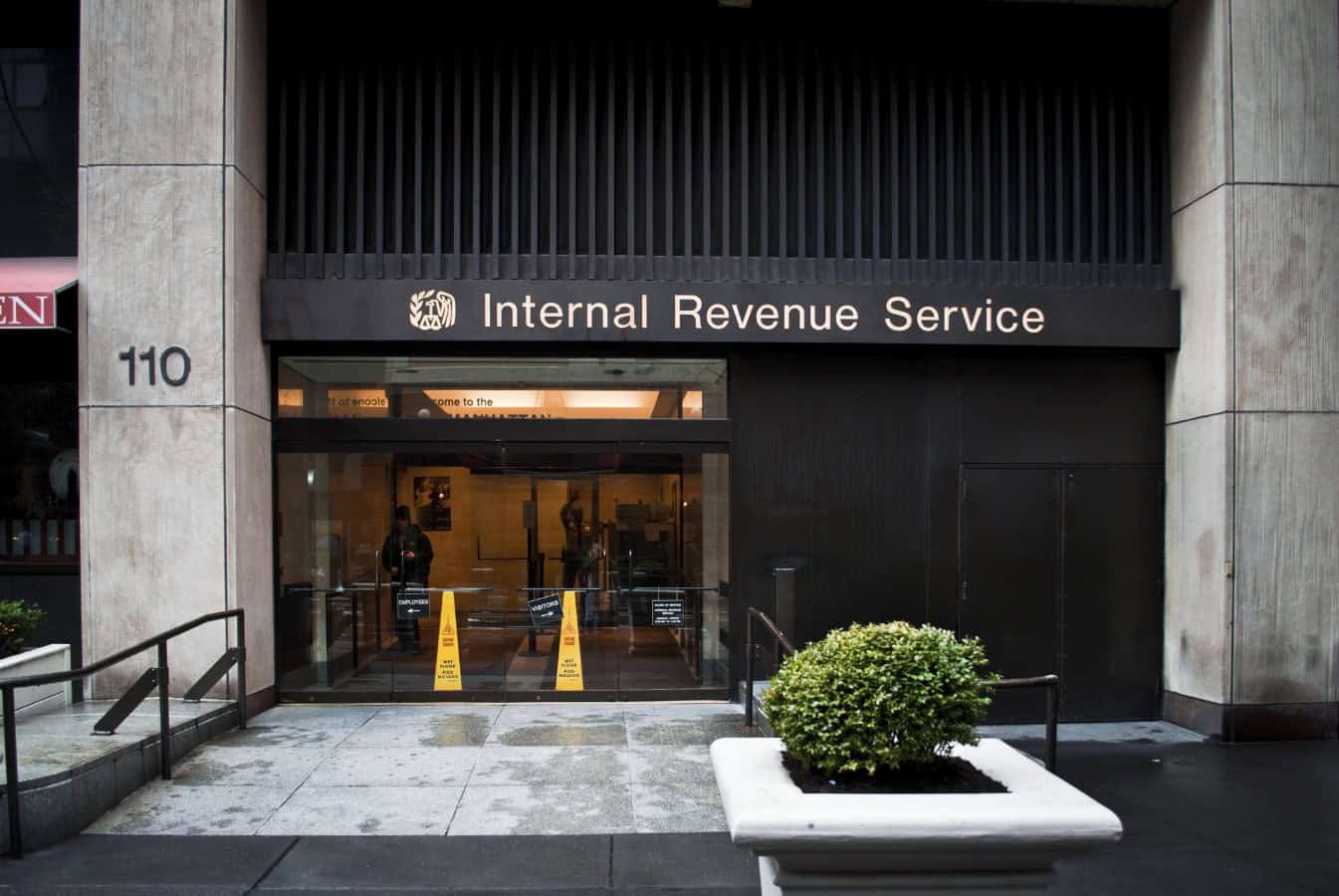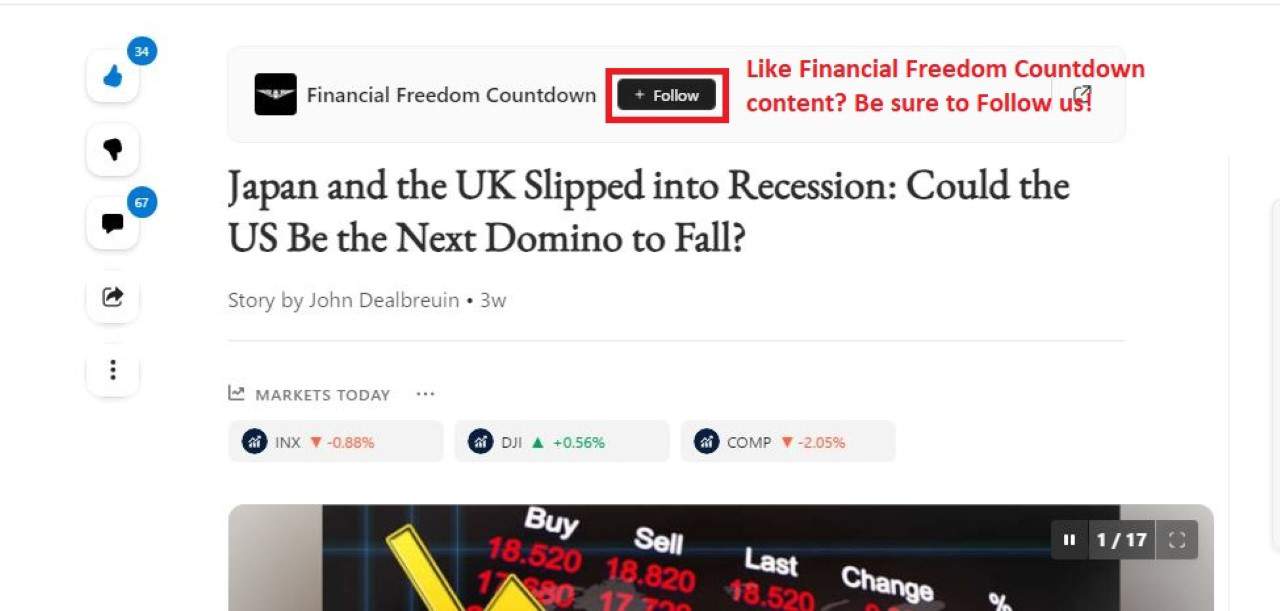Trump Ends IRS Free Filing Program As Chief Declares: “I Don’t Care About Direct File” – Financial Freedom Countdown
The Trump administration is preparing to eliminate the IRS’ Direct File program, a free tax filing tool launched during President Joe Biden’s term.
The move, according to people familiar with the matter, reflects Trump’s broader push to streamline government services and reduce what Republicans call unnecessary federal overreach.
A Program Born Under Biden

Direct File was created in 2024 with funding from the Inflation Reduction Act.
It let taxpayers in 12 states file federal returns directly with the IRS at no cost and was expanded to cover half the country in 2025.
Roughly 300,000 taxpayers used the program this year, with 94% rating it positively.
Up to 30 million Americans could have used the Direct File system for free in 2025, according to the Treasury Department.
Where Direct File Was Available

The IRS first tested Direct File in 12 states during the 2024 tax season: Arizona, California, Florida, Massachusetts, New Hampshire, New York, Nevada, South Dakota, Tennessee, Texas, Washington, and Wyoming.
These states were selected because they either had no state income tax or worked directly with the IRS to integrate their filing systems, making them the initial testing ground for the program.
The IRS expanded its free tax filing service to 13 additional states for the 2025 tax filing season.
IRS Chief Makes His Position Clear

IRS Commissioner Bill Long confirmed in July that the program is being scrapped. “You’ve heard of Direct File, that’s gone,” Long told a group of tax professionals. “Big beautiful Billy wiped that out. I don’t care about Direct File. I care about direct audit.”
His blunt remarks underscored the agency’s pivot toward enforcement and modernization rather than competing with private industry.
Agency Points to Audits, Tech Upgrades as Direct File Ends

“Commissioner Billy Long is committed to modernizing the IRS and providing a taxpayer experience that meets today’s expectations, which includes giving taxpayers transparency into the status of their tax returns and audits. We look forward to Treasury’s forthcoming report to Congress on the Direct File program and on potential public-private partnership alternatives to Direct File, as required by the One Big Beautiful Bill.” an IRS spokesperson said.
The Role of Elon Musk and Efficiency Cuts

Elon Musk, heading the Department of Government Efficiency, has been driving cost-cutting measures across the federal government.
Though some initially thought Musk’s team of programmers might improve Direct File, IRS staff were quietly ordered in March to stop work on future versions.
Musk himself bragged online that he had “deleted” 18F, the government tech office behind Direct File.
Supporters of Direct File Claim Taxpayers Lose Out

Progressive groups are furious. They called the decision “an outrage,” and “another gift to the multibillion-dollar tax prep industry.”
“Trump is blatantly making filing taxes more difficult and costly for the average taxpayer to protect his elite allies in the multi-billion-dollar commercial tax prep industry,” said David Kass, ATF Executive Director. “Americans shouldn’t have to pay hundreds of dollars to billion-dollar companies and spend hours doing their taxes when they could file directly with the government for free. We know direct filing works—it eliminates waste, improves tax revenue, and saves taxpayers money. This move exposes what’s really happening in Trump’s Administration: it was never about efficiency, it’s about Trump and his billionaire allies taking money from our pockets to make the tax system worse and line the pockets of big business elites in this predatory industry.”
Senator Warren Weighs In

Sen. Elizabeth Warren, a longtime critic of the tax prep industry, blasted the administration’s decision.
She argued that Trump and Musk were siding with corporations at the expense of taxpayers, saying free filing is a basic service Americans deserve.
She said in a statement that Trump and Musk “are going after Direct File because it stops giant tax prep companies from ripping taxpayers off for services that should be free. Americans want a free and easy way to file their taxes — Trump and Musk want to take that away.”
Warren’s sharp rhetoric highlights the partisan split: while her supporters see her as a defender of consumers, critics often view her as a symbol of heavy-handed government expansion.
Critics of Direct File Say Program Was Wasteful

Conservatives argue Direct File was flawed from the beginning.
They say the program was riddled with hidden costs and taxpayer confusion.
A National Taxpayers Union Foundation analysis found that the IRS had overstepped its authority and warned the program would become a financial drain if expanded nationwide.
Trump Case for Efficiency

For the administration, the decision is about cutting duplication and letting private companies handle tax prep instead of the federal government.
Supporters note that the IRS already has free filing partnerships with private providers, as well as programs like Volunteer Income Tax Assistance for lower-income households.
Ending Direct File, they argue, saves taxpayer dollars while allowing the IRS to focus on audits and modernization projects.
What Options Remain for Taxpayers

Even without Direct File, Americans will still have ways to file taxes for free.
The IRS partners with third-party companies to offer free services based on income and state eligibility, while lower-income families can access free in-person help through IRS-sponsored programs.
Taxpayers can also use the IRS’ free fillable forms online.
The Larger Debate Over Tax Filing

The end of Direct File illustrates a philosophical divide: should the IRS act as both tax collector and tax preparer, or leave that role to the private sector?
Trump and allies say government-run tax prep was always unnecessary, while critics believe its elimination is a setback for convenience and fairness.
Like Financial Freedom Countdown content? Be sure to follow us!
New Trump Order Lets 401(k) Hold Crypto and Private Equity. Is It a Retirement Revolution or a Trap?

In a move that could reshape retirement planning for millions, President Donald Trump signed an executive order on Thursday allowing alternative investments like private equity, cryptocurrencies, and real estate to be included in 401(k) plans. The change marks a dramatic shift in policy, potentially opening the $12.2 trillion retirement savings market to high-growth assets previously off-limits to everyday Americans.
New Trump Order Lets 401(k) Hold Crypto and Private Equity. Is It a Retirement Revolution or a Trap?

With the Social Security trust funds projected to run out in less than a decade, Sens. Bill Cassidy (R-La.) and Tim Kaine (D-Va.) are pitching a bold plan. Their idea: invest $1.5 trillion over five years into a separate investment fund, give it 70 years to grow, and use the returns to keep benefits flowing.
Bold $1.5 Trillion Plan Promises to Rescue Social Security As Experts Warn of Big Risks

Nearly one in five student loan borrowers age 50 and older are now considered “seriously delinquent” on their debt, according to new data from the Federal Reserve Bank of New York. That means they are at least 90 days late on their payments. The delinquency rate for this age group spiked to about 18% in the second quarter of 2025, compared to just 10% back in 2019.
Nearly 20% of Older Borrowers Behind on Student Loans as Trump Shields Social Security Benefits

Today marks the 90th anniversary of Social Security, a program that has kept millions of Americans out of poverty for generations. But while the monthly checks remain a lifeline for retirees, new warnings from the program’s trustees show that drastic changes could be coming within less than a decade; unless Congress acts soon.
Social Security Turns 90 Today; But Trustees Warn Your Benefits May Not Survive to 100
Tariff Revenues Surging, But Don’t Expect Rebate Checks Anytime Soon

Treasury Secretary Scott Bessent said Tuesday that President Donald Trump’s import tariffs are generating far more revenue than previously expected. Speaking on CNBC’s Squawk Box, Bessent revealed that his earlier $300 billion estimate will be revised “substantially upward,” though he declined to provide an exact figure.
Tariff Revenues Surging, But Don’t Expect Rebate Checks Anytime Soon

Did you find this article helpful? We’d love to hear your thoughts! Leave a comment with the box on the left-hand side of the screen and share your thoughts.
Also, do you want to stay up-to-date on our latest content?
1. Follow us by clicking the [+ Follow] button above,
2. Give the article a Thumbs Up on the top-left side of the screen.
3. And lastly, if you think this information would benefit your friends and family, don’t hesitate to share it with them!

John Dealbreuin came from a third world country to the US with only $1,000 not knowing anyone; guided by an immigrant dream. In 12 years, he achieved his retirement number.
He started Financial Freedom Countdown to help everyone think differently about their financial challenges and live their best lives. John resides in the San Francisco Bay Area enjoying nature trails and weight training.
Here are his recommended tools
Personal Capital: This is a free tool John uses to track his net worth on a regular basis and as a retirement planner. It also alerts him wrt hidden fees and has a budget tracker included.
Platforms like Yieldstreet provide investment options in art, legal, real estate, structured notes, venture capital, etc. They also have fixed-income portfolios spread across multiple asset classes with a single investment with low minimums of $10,000.